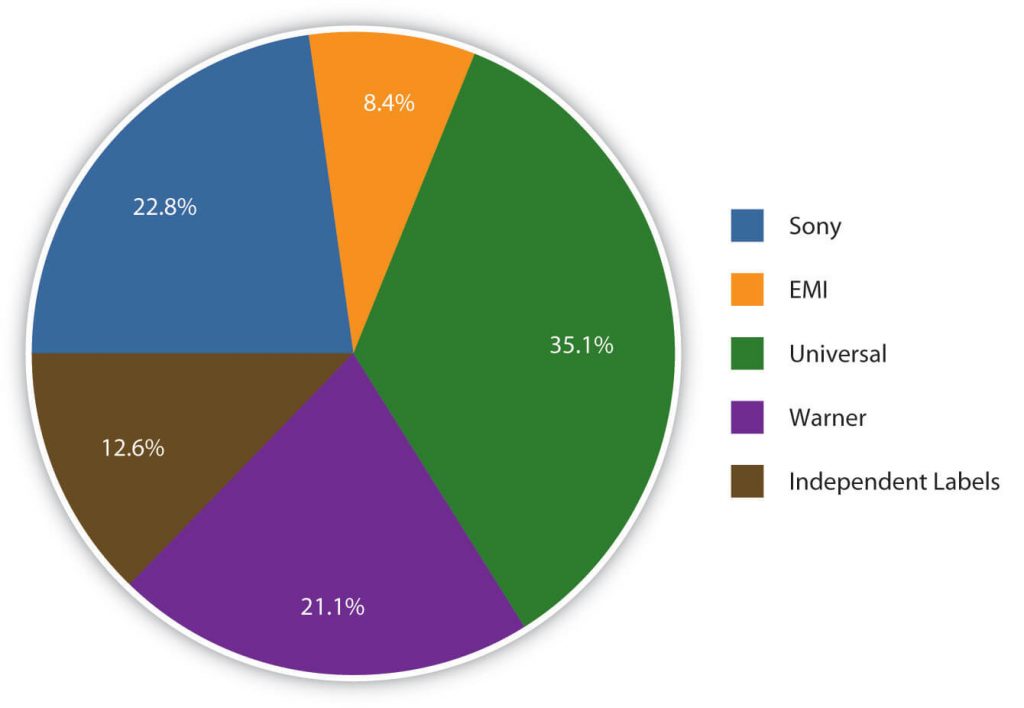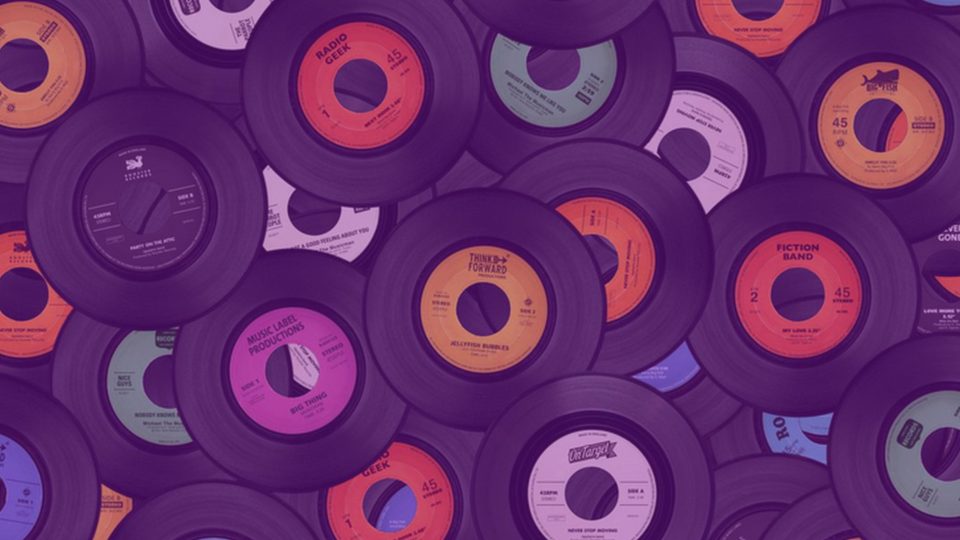The Role of Record Labels, From Independent to Major
Record labels, whether you love them or hate them, have held an important role in contemporary and alternative music for a number of decades. Streaming services may have made music more accessible than it’s ever been, but it was the role of record labels to do the hard work of getting music heard before the digital era.
By hard work, we mean that record labels used their distribution networks to get the music of the latest and greatest artists in front of fans.
Today, when streaming services have made it so easy to be a self-releasing artist, many don’t actually know what record labels do. The role of record labels is still a crucial one in many ways. Whether major or independent, record labels provide opportunities to emerging artists as well as established ones.

What is the Role of a Record Label?
In your time on this blue planet, you may well have heard of the major labels that we’ll discuss in a minute.
But there are also smaller independent labels that have full creative control over who and what they sign and do. Because of their creative control, independent labels often sit in the niche areas of a music genre. In the grand scheme of things, the role of independent record labels is more creative than major major labels. Some indie labels may not the genre boundaries any further than they already are, while others specialize in finding artists that intentionally break the rules and do artistically new things.
As well as independent labels, there are also sub-labels that major record labels own. These sub-labels specialize in recording, publishing, and promoting a variety of popular genres such as Latin or Jazz music.
Record labels market and distribute recorded music and corresponding music videos. Some may have in-house recording studios, but this was more common a few decades ago than it is now.
Labels perform a variety of tasks in our beloved music industry. These tasks include scouting and recruiting new artists and developing them into a marketable brand, as well as music publishing, and copyright enforcement.
What Record Labels Do For Artists
A major label will usually set the terms of their artist contracts in their own favour. For newly signed artists, record labels can and often do control the type and genre of music they record. The label essentially gives an artist a blueprint to work with if they want to get paid. This blueprint may or may not dictate how the recorded music should sound and what lyrics they can sing. As well as the music, a label almost always has control over the album cover art.
How do they get this control? Why wouldn’t an artist just wait for another contract to spring up?!
The truth is, it’s never certain if the artist will get another record deal offer. But that’s not the reason a label gets the control they do. A label, especially major labels, give the artist what’s called an advance. An advance is a sum of money given to the artist by the label so that the artist can focus as much time as possible on making an album.
Did we say “gives” an artist a sum of money? Sorry, we meant that the label loans the money to the artist. When the artist has finished the album and it’s on sale, the label will get its money back by deducting it from the album revenue. Think of it as a return on investment. If you were to give me £1000 for a job and I didn’t adhere to what you wanted me to do… how would you feel?
Major And Indie Label Contracts
Major labels are usually more dictatorial than independent labels. Independent labels can’t always afford to give an artist an advance either. It is different in all cases, but many independent labels give an artist full creative control over their own work. The label may give the artist a budget to work within and a deadline to have the work finished, but the artist is left to their own devices while making the album/single unless they need something that the label can provide (access to a studio, etc.).
Depending on the structure of a contract, a record label can also dictate the amount of money that the artist will earn from their work. We’ll go into the specifics shortly, but while the contractual relationship between an artist and a record label can be mutually beneficial, there is always a chance that it can become hostile.
The more successful an artist becomes gives them more leverage over the contract. This gives them a greater ability to renegotiate their contracts to include more favourable terms for them.
A&M Records, founded in 1962 by Herb Alpert and Jerry Moss, stands as one of the most successful indie labels of all time, having signed artists such as Sting, Sheryl Crow, and Joe Cocker during its four-decade run.
Balance Careers
What Are The Three Major Labels?
Universal Music Group, Warner Music Group, and Sony Music are the three major record labels. EMI records were the fourth biggest record label before Universal Music Group paid just under $2 billion to buy them out.

What Do Major Record Labels Do?
A major record label has numerous departments that all work together to find emerging artists and offer them exclusive record contracts. Major record labels own global distribution networks that enable them to market and distribute artists that they sign to millions of fans and consumers in a matter of days – and sometimes hours.
A major label will sign a multitude of agreements with the artists they sign contracts with, including licensing and distribution agreements. These agreements in particular decide who gets what percentage of total revenue earned. Labels, whether major or independent, always take a significant cut of global earnings due to a few factors. For example, they need to pay their A&R scouts, cover the costs of hiring a studio, the label needs to pay their electricity bill, etc.
The sub-labels that major labels own use the distribution networks that the major labels own. Departments within the sub-label often take care of their own artist recruitment, artist development, marketing, etc.
Independent labels don’t have any corporate backing like sub-labels do. This is why they’re called indie labels!
What About Do Independent Labels?
With no corporate backing, independent are businesses founded by individual people or teams. They start from the ground up and build little by little.
Independent record labels can often only offer low-paying record deals. When an independent label grows and becomes more successful they can offer more profitable contracts to an artist. However, it’s rare to find an independent label that can compete with major label recording deals. Why? Because independent labels make less money but equally need to pay the electricity bill and run/hire a recording studio.
But just because they can’t pay an artist as much as a major label does not mean anyone can discredit their value in the music industry. Indie labels bag and tag up-and-coming artists, and this helps these artists become known.
Upcoming music trends are a propulsive engine in the indie label world. Naturally, a company wants to be known as the first to share this or that artists’ work if they think their audience will like it. With this in mind, you can understand why independent labels have a reputation for having their fingers on the pulse of new and upcoming music trends. Indie labels are special because they give chances to unknown artists who can eventually become international sensations.
How to Network as a Music Producer and Spread Awareness of Yourself
The distribution networks that independent labels have access to or own are dramatically smaller than that of a major label. The music released by indie labels reaches fans at a much slower rate. Indie labels, then, have to work harder in their marketing than a major label.
Because of the disparity of their resources, indie labels must have a strong social media, content marketing, and networking game if they want the masses to hear the music their artists are putting.
Record labels aren’t interested in music that doesn’t sound professional. That’s why you need professionally made samples that are ready to go.
The sampling revolution has risen in popularity and shaped music since the early 1970s. Sample culture continues to transform how millions of artists and producers do their thing in DAWs.
You too can break conventional norms, challenge the status quo, and open Pandora’s box of sound design.
Mixxed works with a growing number of sample labels and contributors to provide you with an affordable sample subscription service that’s more accessible than any before.
You’ll have access to our growing catalogue of loops, one-shots and sound effects that you can browse, download and keep forever for less than $3 a month.
Sign up today to find your sound!
